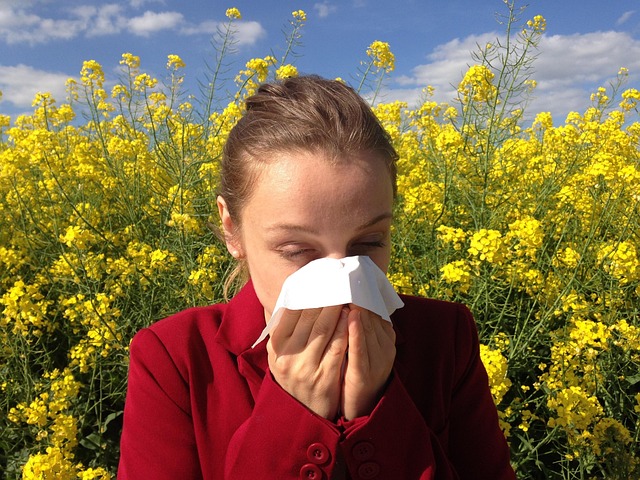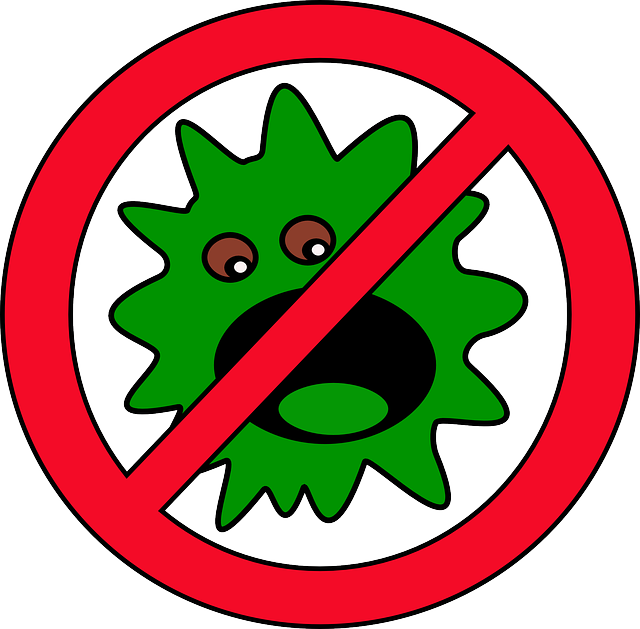Mold exposure can cause a range of health issues, from mild allergies like sneezing and skin irritation to severe conditions like toxic mold sickness. Individuals with respiratory conditions or weakened immune systems are particularly vulnerable. Symptoms include respiratory distress, chronic sinus infections, skin rashes, fatigue, headaches, nausea, dizziness, and memory problems. Prompt recognition of these mold exposure symptoms and mold poisoning signs is crucial for mitigating health risks and creating a healthier living environment. Regular medical check-ups are recommended for those at high risk.
In homes and buildings across the globe, mold thrives in hidden corners, posing silent threats to human health. This comprehensive guide delves into the best ways to reduce mold-related health risks. From understanding the subtle symptoms of mold exposure to recognizing the allergy risks and detecting toxic mold poisoning, each section illuminates a critical aspect of this pervasive issue. By exploring the health effects of mold infestations and knowing when to seek help for respiratory issues, you’ll be equipped to create a safer living environment.
- Understanding Mold Exposure Symptoms and Their Impact
- Unveiling the Risks of Mold Allergies: What to Know
- Exploring the Health Effects of Mold Infestation
- Recognizing Mold-Related Respiratory Issues and When to Seek Help
- Detecting Toxic Mold Poisoning: Signs You Shouldn't Ignore
Understanding Mold Exposure Symptoms and Their Impact

Understanding Mold Exposure Symptoms and Their Impact
Exposure to mold can lead to a range of health issues, particularly for individuals with existing respiratory conditions or weakened immune systems. The symptoms of mold exposure can vary greatly, but common signs include nasal congestion, sneezing, itching eyes, skin irritation, and respiratory distress. Those with mold allergies may experience worsening of their allergy symptoms, while those without known allergies might develop non-specific symptoms like fatigue, headaches, and coughs.
Prolonged or severe mold exposure can lead to more serious health effects, including mold poisoning, also known as toxic mold sickness. This condition is characterized by a host of symptoms, such as nausea, vomiting, dizziness, cognitive impairments, and even neurological issues. It’s crucial to address any signs of mold-related health risks promptly to mitigate potential damage and ensure a healthier living environment.
Unveiling the Risks of Mold Allergies: What to Know

Unveiling the Risks of Mold Allergies: What to Know
Mold exposure is a common concern in both residential and commercial settings, as it can proliferate unnoticed in damp environments. While some individuals may experience mild irritation from mold exposure, others are at risk of developing severe mold allergies. Understanding the health effects of mold is crucial for recognizing mold exposure symptoms such as sneezing, runny nose, itchy eyes, and respiratory distress. Prolonged or intense mold exposure can exacerbate existing conditions like asthma and lead to chronic mold-related respiratory issues.
For those more susceptible, a severe mold allergy may manifest as toxic mold sickness, characterized by a range of symptoms including headaches, fatigue, rashes, and even cognitive impairment. It’s important to be aware that certain molds produce mycotoxins, which can contribute to these adverse health effects. If you suspect a mold problem or experience persistent mold poisoning signs, it’s crucial to address the issue promptly to mitigate potential long-term health risks associated with mold exposure.
Exploring the Health Effects of Mold Infestation

Mold infestation can have significant health implications for individuals exposed to it. Understanding the health effects of mold is crucial in mitigating risks associated with prolonged exposure. Mold exposure symptoms range from mild allergies and respiratory issues to more severe conditions like toxic mold sickness, or mycotoxicosis. Individuals with pre-existing respiratory conditions, such as asthma or COPD, are particularly vulnerable to the adverse effects of mold, which can include coughing, wheezing, and difficulty breathing.
The specific health risks vary depending on the type of mold and the duration and intensity of exposure. Mold allergies, for instance, can lead to symptoms like sneezing, runny nose, and itchy eyes. More concerning are molds that produce toxic compounds known as mycotoxins, which can cause a range of non-specific symptoms including fatigue, headaches, nausea, and cognitive impairment, often collectively referred to as “mold poisoning.” Recognizing these mold exposure symptoms is essential for prompt action to remediate the infestation and prevent further health complications.
Recognizing Mold-Related Respiratory Issues and When to Seek Help

Recognizing Mold-Related Respiratory Issues and When to Seek Help
Prolonged exposure to mold can lead to a range of health issues, particularly affecting the respiratory system. Individuals with pre-existing conditions like asthma or allergies are more susceptible to developing mold-related respiratory problems. Symptoms of mold exposure include sneezing, runny nose, coughing, and difficulty breathing. These symptoms may persist or worsen over time if mold is not addressed. In some cases, toxic mold sickness can occur, leading to more severe health effects such as fatigue, headaches, and even neurological issues.
If you suspect any mold-related respiratory issues or experience persistent symptoms that don’t improve with standard treatments, it’s crucial to seek help from a healthcare professional. They can provide accurate diagnoses and recommend appropriate treatment options. Regular medical check-ups are essential for those living in areas prone to high moisture levels or past mold infestations to mitigate potential long-term health effects of mold exposure.
Detecting Toxic Mold Poisoning: Signs You Shouldn't Ignore

Detecting Toxic Mold Poisoning: Signs You Shouldn’t Ignore
While some people may dismiss it as a simple allergy or cold, prolonged exposure to mold can lead to serious health issues, including toxic mold poisoning. It’s crucial to be aware of the subtle signs and symptoms that could indicate mold-related problems. One of the first indicators is a set of respiratory issues, such as coughing, wheezing, shortness of breath, and chronic sinus infections. These symptoms often point towards mold related respiratory issues due to the irritants released by mold growth.
Other health effects of mold exposure can be equally concerning. From skin rashes and itching to fatigue and headaches, these are common mold allergy risks that shouldn’t be ignored. In more severe cases, individuals may experience nausea, dizziness, or even memory problems. The long-term health effects of mold can be devastating, making it essential to act promptly if any of these signs persist. Recognizing the mold exposure symptoms is a proactive step towards mitigating potential toxic mold sickness and ensuring a healthier living environment.
